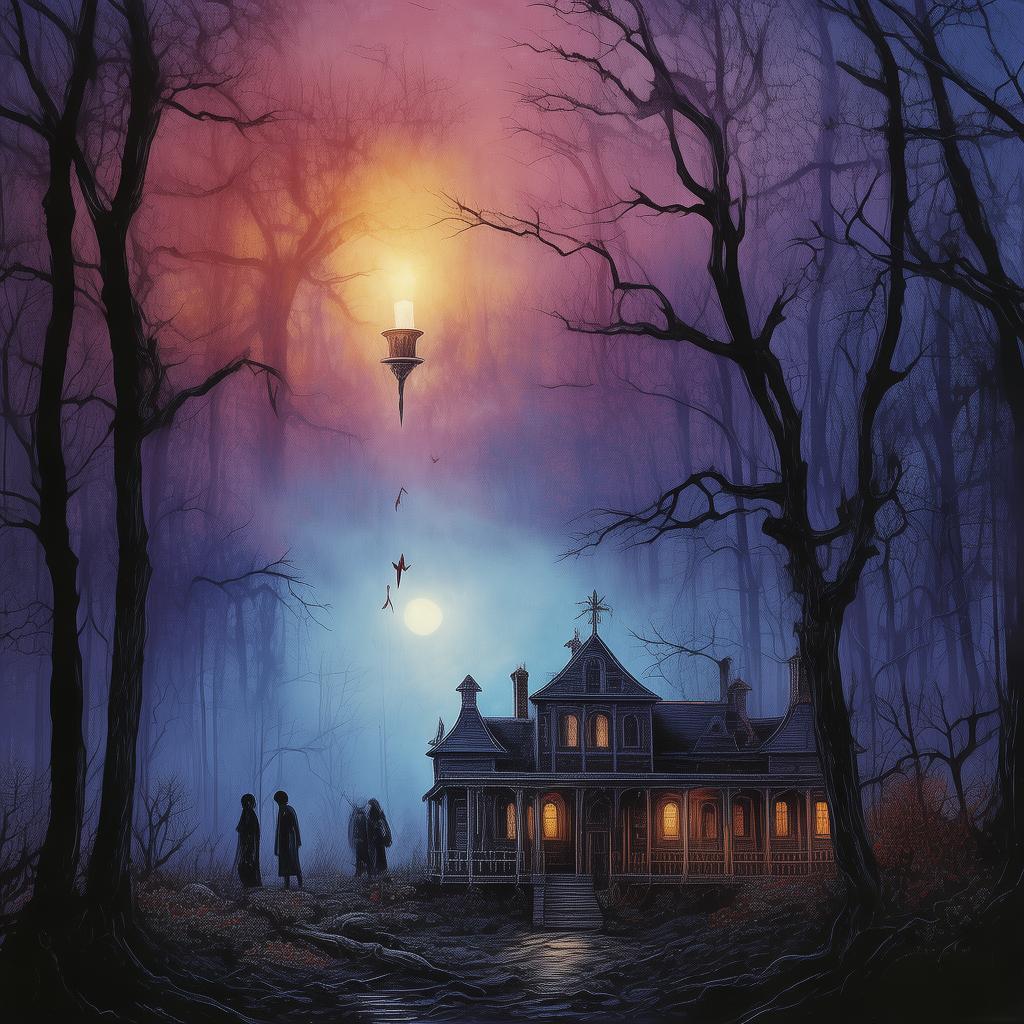The Eerie Echoes of the Forgotten Lament
In the heart of a remote, mist-enshrouded village, nestled between towering mountains and a treacherous river, lived a young and talented musician named Ling. Her melodies had a way of weaving magic, soothing the soul and healing the ailing. But it was her ability to sing the forgotten ballads of her ancestors that set her apart. These were not just songs, but stories passed down through generations, each with its own eerie tale.
One moonlit night, as the villagers prepared for the annual Harvest Festival, Ling wandered into the old, abandoned library at the edge of the village. The air was thick with dust and the scent of old paper. Her fingers danced across the spines of ancient books, each one whispering tales of yesteryears. Her eyes were drawn to a leather-bound volume, its cover faded and its pages yellowed with age. It was a book of ballads, filled with lyrics that seemed to pulse with a life of their own.
Curiosity piqued, Ling opened the book to a page where the ink was still fresh. The ballad, titled "The Eerie Echoes of the Forgotten Lament," spoke of a vengeful spirit, cursed by an ancient, malevolent force. The spirit, a young woman named Meiling, had been betrayed and murdered by her own kin. Her ghost was trapped within the village, bound to seek eternal revenge until her story was told and her name was spoken.

Ling felt a shiver run down her spine. The lyrics were hauntingly beautiful, yet foreboding. She knew she had to share this story with the villagers, to release the spirit from its curse. As she sang the ballad at the Harvest Festival, the air grew thick with tension. The villagers, who had long forgotten the old ballads, began to feel an inexplicable dread.
The next morning, the villagers awoke to find their crops withered, their animals ill, and their children whispering in their sleep of a ghostly woman with eyes like stars and hair like flames. The village elder, an elderly man named Master Li, recognized the signs. He knew the spirit of Meiling was growing stronger, and with it, the village's fate grew more uncertain.
Ling, determined to save her village, sought the help of Master Li. Together, they embarked on a journey to uncover the truth behind Meiling's curse. They traveled to the ancient tomb where Meiling was said to be buried, a place long forgotten by the villagers. As they reached the tomb, they were greeted by a chilling wind and the sound of a haunting melody.
Inside the tomb, they found Meiling's remains, her eyes wide and her lips moving as if she were still singing. Master Li, with a tear in his eye, whispered her name and recited an ancient incantation. The spirit, freed from its curse, thanked them for her release and disappeared into the mist.
The village began to heal. The crops flourished, the animals thrived, and the children returned to their normal sleep. But Ling and Master Li knew the spirit's story must be preserved, for if forgotten, the curse could return.
Ling vowed to continue singing the ballad, to ensure that the memory of Meiling and her tragic tale would never be lost. She performed the song at every festival, and the villagers, grateful for her courage and dedication, began to see her as a guardian of their culture.
The Eerie Echoes of the Forgotten Lament became more than just a ballad; it was a reminder of the village's past and a testament to the strength of memory and the power of forgiveness. And so, the story of Meiling lived on, a haunting ballad that would forever be etched in the hearts of the village's people.
✨ Original Statement ✨
All articles published on this website (including but not limited to text, images, videos, and other content) are original or authorized for reposting and are protected by relevant laws. Without the explicit written permission of this website, no individual or organization may copy, modify, repost, or use the content for commercial purposes.
If you need to quote or cooperate, please contact this site for authorization. We reserve the right to pursue legal responsibility for any unauthorized use.
Hereby declared.









